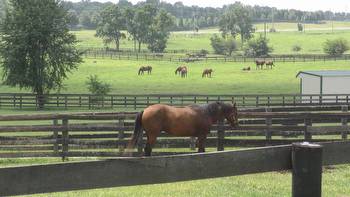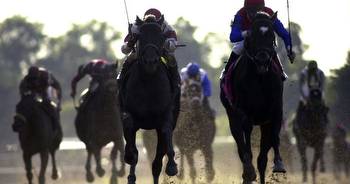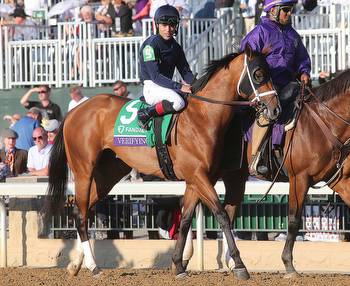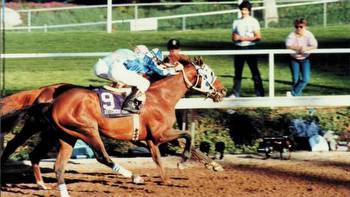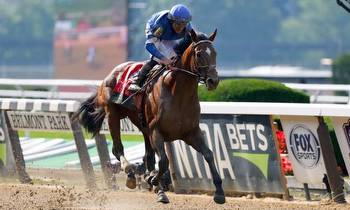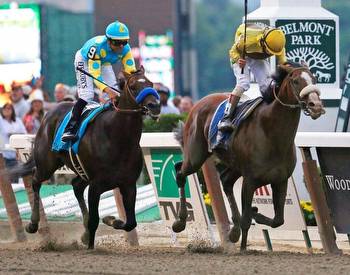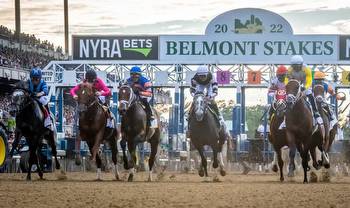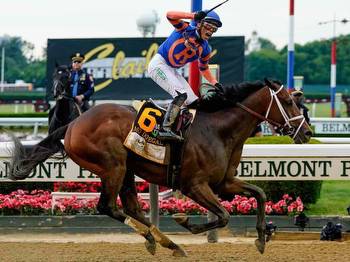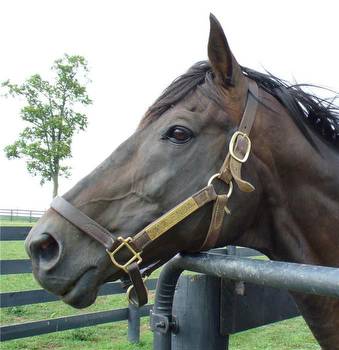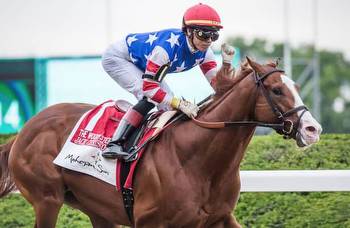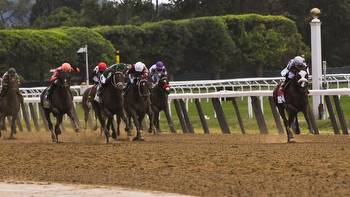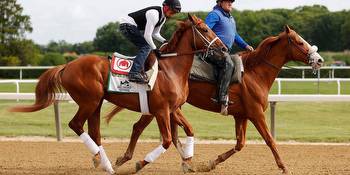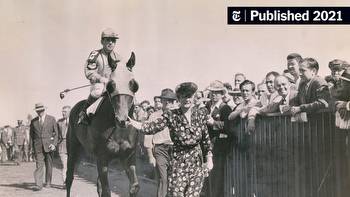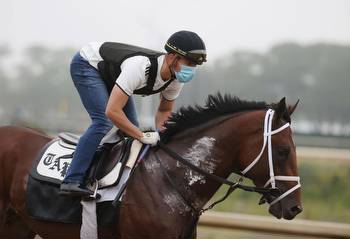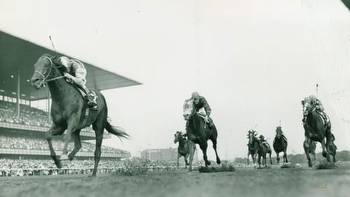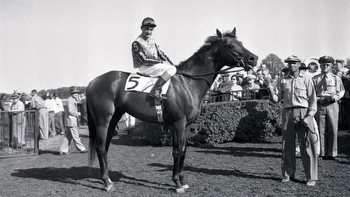Flashback: 3-year-old Gulch wins the 1987 Metropolitan Handicap
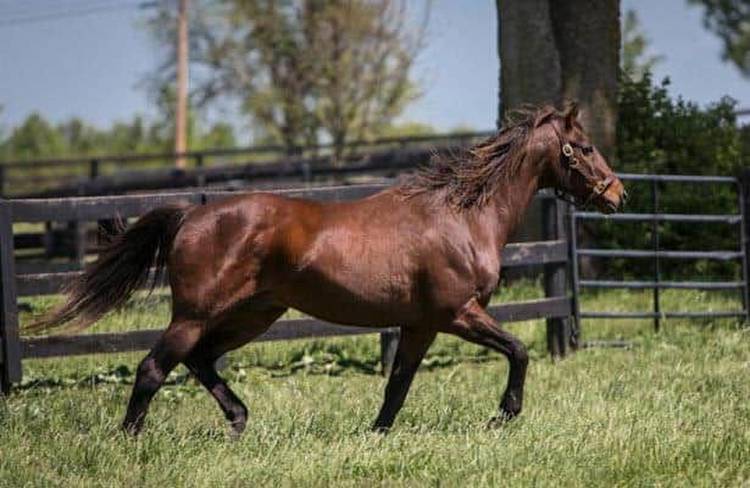
Once upon a time, in the not-too-distant past,the Metropolitan Handicap was the traditional feature race at Belmont Park onMemorial Day. Then, as now, the “Met Mile” was a traditional spring target forsome of the most talented older horses in training.
But once in a while, the Metropolitan was also a goal for ambitious 3-year-oldshoping to snatch a prestigious prize from their elders. Falling in between thePreakness and Belmont Stakes, the Metropolitan occasionally served as apost-Derby target for runners who disappointed at Churchill Downs or as a prepfor newcomers looking to sharpen up for the Belmont Stakes.
And on very rare occasions, the Metropolitan was an additional stopping point forsophomores in the midst of contesting all three legs of the Triple Crown. Suchwas the case in 1987, when the ultra-versatile, tough-as-nails Gulch tackled anelite field of eight older rivals in the 1-mile test of speed and brilliance.
Nowadays, such a move would be unprecedented. A late-running son of Mr.Prospector conditioned by LeRoy Jolley, Gulch already had run two hard races tokick off the Triple Crown, charging late to finish sixth in the Kentucky Derbyand fourth in the Preakness. In the Met Mile, Gulch would face olderrivals for the first time while wheeling back on just nine days of rest.
Furthermore, Gulch would face a daunting field. There was Broad Brush, athree-time Grade 1 winner fresh off consecutive victories in the Santa AnitaHandicap (G1), John B. Campbell Handicap (G3) and Trenton Handicap (G3). Therewas King’s Swan, winner of the 1986 Vosburgh (G1). Also in the field was 1986Breeders’ Cup Sprint (G1) runner-up Pine Tree Lane, a fast mare entering off awin in the Carter Handicap (G2) against males.
But there were reasons to believe Gulch could handle the challenge. For one, hewould tote just 110 pounds in the Met Mile, 18 fewer than 128-pound highweightBroad Brush. For another, he would gain the services of Hall of Fame jockey PatDay, whose patient riding style seemed like a perfect match for thelate-running colt.
Just as important, Gulch was no slouch in one-turn races. Though he’d won the1 1/8-mile Wood Memorial (G1) as a precursor to the spring classics, Gulch wasarguably best running shorter. As a juvenile, he’d put together a string ofhigh-level sprint wins on the New York circuit, rattling off victories in theTremont (G3), Saratoga Special (G2), Hopeful (G1) and Futurity (G1) to stamphis credentials as a promising prospect. Returning to a one-turn mile held thepotential to sharpen Gulch’s finishing kick and return him to the winner’scircle.
So when the gates opened at Belmont Park on May 25, 1987, Gulch was a respected5-1 shot in the wagering, with Broad Brush the 9-5 favorite and Pine Tree Lanewell regarded at 5-2. The latter wasted no time putting her early speed to gooduse, running off to lead by four or five lengths through blazing fast fractionsof :22 3/5 and :44 2/5. King’s Swan was content to track in second, with BroadBrush and Gulch well off the pace in the early going.
Rounding the turn, Pine Tree Lane gradually came back to her pursuers. Sprintingthe second quarter in :21 4/5 was more than she could handle, and following sixfurlongs in 1:09 1/5, Pine Tree Lane ran out of steam and conceded theadvantage to King’s Swan and a charging Broad Brush.
But looming behind the favorite, rallying fast on the extreme outside, wasGulch. Pat Day’s conservative ride was paying off; the early pace had tired outeveryone within striking distance of the early tempo, leaving the sophomore tomake the last move and pick up the pieces.
Sweeping past horses in the middle of the track, Gulch was relentless down thelane. The field was tight, with seven runners separated by about two lengths atthe top of the stretch. There was mild bumping as horse shifted inside and out,but Gulch paid no heed and kept galloping resolutely toward the finish line.Broad Brush tried his best and King’s Swan was astalwart fighter, but Gulch had the momentum and wore down his leg-weary rivalsin the final furlong to win by a neck in 1:34 4/5.
It was a memorable victory, a testament both to Gulch’s talent and hisversatility. As it turned out, a mile was pretty much right smack in the middleof Gulch’s distance capabilities. Just 12 days after the Met Mile, Gulchreturned to finish third in the 1 1/2-mile Belmont Stakes, and the followingyear, he proved sufficiently speedy to win the 6-furlong Breeders’ Cup Sprint(G1) and secure an Eclipse Award as champion sprinter.
Years later, following a successful stud career, Gulch retired to a life ofleisure at Old Friends farm in Kentucky. When he passed away in 2016, at theripe old age of 32, Old Friends founder Michael Blowen perfectly summed up whatmade Gulch so special:
“As LeRoy Jolley, who was Gulch's first trainer, once said, ‘Gulch must be thetoughest horse who ever lived,’ and he was,” Blowen said in a press release.“He was confident, self-possessed and regal. He didn't demand respect — he earnedit. He is irreplaceable.”
Winningthe Metropolitan in the middle of a full-fledged Triple Crown campaign? There’sno doubt Gulch was tough, respected and irreplaceable. That’s one race that isn’teven a contest.


